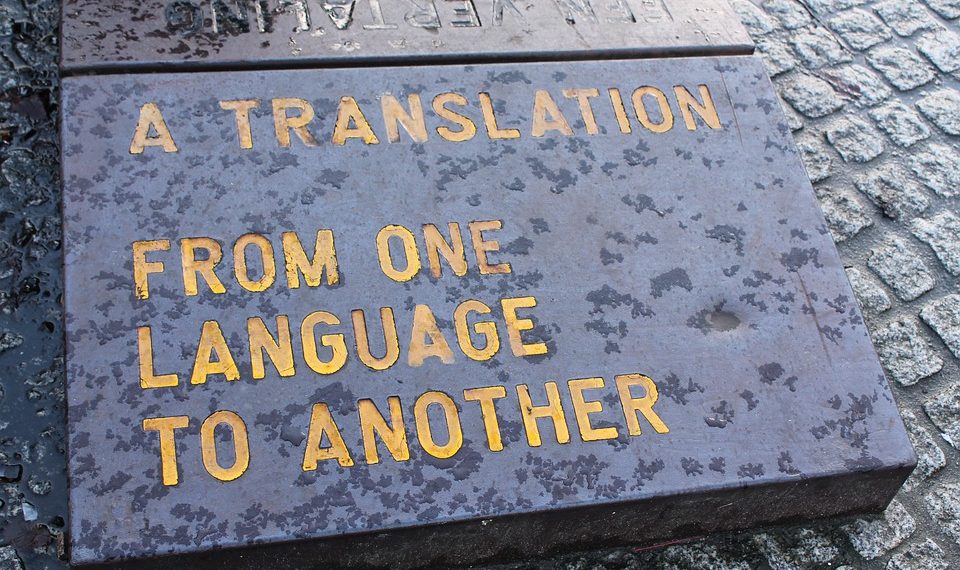In today’s fast-paced world, job titles often steal the spotlight. We’ve all heard phrases like “I’m a senior manager” or “I’m an executive director.” But do these labels truly capture our abilities and potential? Many people tie their self-worth and career satisfaction to these designations, assuming they dictate success. However, the truth is much more nuanced. Your journey is about so much more than just what appears on your business card. Let’s dive into why job titles don’t define your career success and explore the deeper aspects of professional fulfillment. You’ll be glad you read this post and make a better career move later on.
Job Titles Don’t Reflect Your Skills or Expertise
 Job titles can often be misleading. They may sound impressive, but they don’t always showcase what you truly bring to the table. A title like “Project Manager” might not convey your extensive background in strategic planning or team leadership. Many professionals possess skills that far exceed their official designations. You could be a coding whiz trapped under the label of “Junior Developer.” This disconnect means talent and expertise can go unrecognized, limiting growth opportunities.
Job titles can often be misleading. They may sound impressive, but they don’t always showcase what you truly bring to the table. A title like “Project Manager” might not convey your extensive background in strategic planning or team leadership. Many professionals possess skills that far exceed their official designations. You could be a coding whiz trapped under the label of “Junior Developer.” This disconnect means talent and expertise can go unrecognized, limiting growth opportunities.
Moreover, industries evolve rapidly. New technologies and methodologies emerge, rendering traditional titles obsolete. Your true value lies in adaptability and continuous learning—qualities that seldom fit neatly into any job description. It’s the depth of your knowledge and experience that matters most, not just how fancy your title sounds at networking events or on LinkedIn profiles. Embrace who you are beyond the label; that’s where real potential thrives.
Titles Often Limit Your Growth and Creativity
Job titles can act like invisible chains, binding your potential. When you’re labeled a certain way, it can feel limiting. You might hesitate to explore new ideas or take risks outside of that box. Creativity flourishes in environments where experimentation is encouraged. A rigid title may stifle this process and deter innovation. Instead of being seen as a multifaceted contributor, you become identified by one narrow role. Moreover, job titles often create hierarchies that discourage collaboration. Colleagues may be less likely to share insights when they perceive someone’s rank as superior or inferior. This dynamic can hinder the free flow of ideas necessary for growth.
Success Is About Impact, Not Hierarchy
Success isn’t solely about climbing the corporate ladder. It’s often measured by the impact you make, both within your organization and in the broader community. When you focus on creating value, your contributions resonate far beyond a job title. A person with a simple role can inspire change and innovation that shapes company culture or affects customers positively. Impact comes from collaboration, empathy, and understanding people’s needs. Those who prioritize these elements tend to foster relationships that drive real progress. Titles may suggest authority but don’t always reflect someone’s ability to lead or innovate. Sometimes, it’s those without fancy designations who ignite passion and motivate others to excel.

Your Career Journey Is Unique—Titles Are One-Size-Fits-All
Every career path is a personal journey, shaped by individual experiences and ambitions. One person might thrive in a structured environment, while another flourishes in chaos. Titles fail to capture these nuances. When you think about it, job titles are often generic labels that don’t account for your specific talents or contributions. A “Project Manager” may handle vastly different projects compared to someone else with the same title. Yet both are boxed into an identical label. Your unique strengths, passions, and values define your professional identity much more than any title ever could. Embracing this individuality allows for a richer experience at work.…



 Time is a precious resource, and when it comes to online learning, managing it effectively is key. Without the structure of a real physical classroom setting, it’s easy to get overwhelmed or distracted. That’s why developing strong time management skills is crucial for success in your online courses.All you need to do is to set aside various dedicated blocks of time every single day specifically for your studies. Treat these study sessions as seriously as you would if you were attending an in-person class. Create a schedule that works best for you, stick to it consistently, and try your best to eliminate distractions during your study time.
Time is a precious resource, and when it comes to online learning, managing it effectively is key. Without the structure of a real physical classroom setting, it’s easy to get overwhelmed or distracted. That’s why developing strong time management skills is crucial for success in your online courses.All you need to do is to set aside various dedicated blocks of time every single day specifically for your studies. Treat these study sessions as seriously as you would if you were attending an in-person class. Create a schedule that works best for you, stick to it consistently, and try your best to eliminate distractions during your study time.

 Journalism is the field for the curious. You get to wake up every day and learn about new topics. It allows you the chance to investigate in-depth matters affecting the world. It is a career that lets individuals reinvent themselves every day. With this, you can always be in the know about what is happening around the world. A good journalist should always be ahead in breaking news as it happens.
Journalism is the field for the curious. You get to wake up every day and learn about new topics. It allows you the chance to investigate in-depth matters affecting the world. It is a career that lets individuals reinvent themselves every day. With this, you can always be in the know about what is happening around the world. A good journalist should always be ahead in breaking news as it happens. For people that enjoy traveling around the world, being a journalist should be a career consideration. Their job description involves covering stories across the globe. To be the first in the scene, a journalist needs to be travel-ready at all times.
For people that enjoy traveling around the world, being a journalist should be a career consideration. Their job description involves covering stories across the globe. To be the first in the scene, a journalist needs to be travel-ready at all times.
 specific assignment help service is charging for this kind of task. Rates may vary depending on several factors like the complexity of your assignment. Compare the charges between different companies to identify the one that is charging reasonably. The education level of your assignment doer is the other thing you should look into carefully. This proves to be essential in several ways which include:
specific assignment help service is charging for this kind of task. Rates may vary depending on several factors like the complexity of your assignment. Compare the charges between different companies to identify the one that is charging reasonably. The education level of your assignment doer is the other thing you should look into carefully. This proves to be essential in several ways which include: doer is the best if you want additional information for your coursework. There are certain things you may fail to cover during your normal study. Hiring someone who has reached the same education level as you or anything higher will ensure you get additional information from your work. They will conduct thorough research. Consider this essential factor to get the best from your assignment.…
doer is the best if you want additional information for your coursework. There are certain things you may fail to cover during your normal study. Hiring someone who has reached the same education level as you or anything higher will ensure you get additional information from your work. They will conduct thorough research. Consider this essential factor to get the best from your assignment.…
 If you want to understand the accounting concepts, it is advisable to get help. Going to class every day is not enough to give you the best results. You need to go beyond the norm and get some help.
If you want to understand the accounting concepts, it is advisable to get help. Going to class every day is not enough to give you the best results. You need to go beyond the norm and get some help.


 attained your level of education or something higher than yours. The other thing you have to consider is the amount they are charging for the service. This may vary depending on the complexity of the task or the amount of work at hand. Compare rates between different assignment help services to settle for one you find charging reasonably on your side. Using an assignment help service may turn out to be beneficial in several ways which include:
attained your level of education or something higher than yours. The other thing you have to consider is the amount they are charging for the service. This may vary depending on the complexity of the task or the amount of work at hand. Compare rates between different assignment help services to settle for one you find charging reasonably on your side. Using an assignment help service may turn out to be beneficial in several ways which include:
 range of services offered, subject matter expertise, quality, and service. In such a wide and varied landscape, it is easy to make the wrong decision regarding your selection of LSP. Hence when choosing a translator, take a look into the following considerations.
range of services offered, subject matter expertise, quality, and service. In such a wide and varied landscape, it is easy to make the wrong decision regarding your selection of LSP. Hence when choosing a translator, take a look into the following considerations. of dialects they translate. While they need to have excellent command over the two lingoes related to your work, hiring a provider that has expertise in other languages is a part of thinking ahead. You may be planning to venture newer markets in the future, and it is wise to work with a provider that deals in all major languages in the universe. When you have a need in the future for another language, you will not have to go through the same process of agency recruitme…
of dialects they translate. While they need to have excellent command over the two lingoes related to your work, hiring a provider that has expertise in other languages is a part of thinking ahead. You may be planning to venture newer markets in the future, and it is wise to work with a provider that deals in all major languages in the universe. When you have a need in the future for another language, you will not have to go through the same process of agency recruitme…










 Make yourself a vital member of your organization. Highlight your responsibilities and achievements and try to convey to the company that they’ll be worse off without you. Depict through your work that you are a valuable asset for the organization.
Make yourself a vital member of your organization. Highlight your responsibilities and achievements and try to convey to the company that they’ll be worse off without you. Depict through your work that you are a valuable asset for the organization.